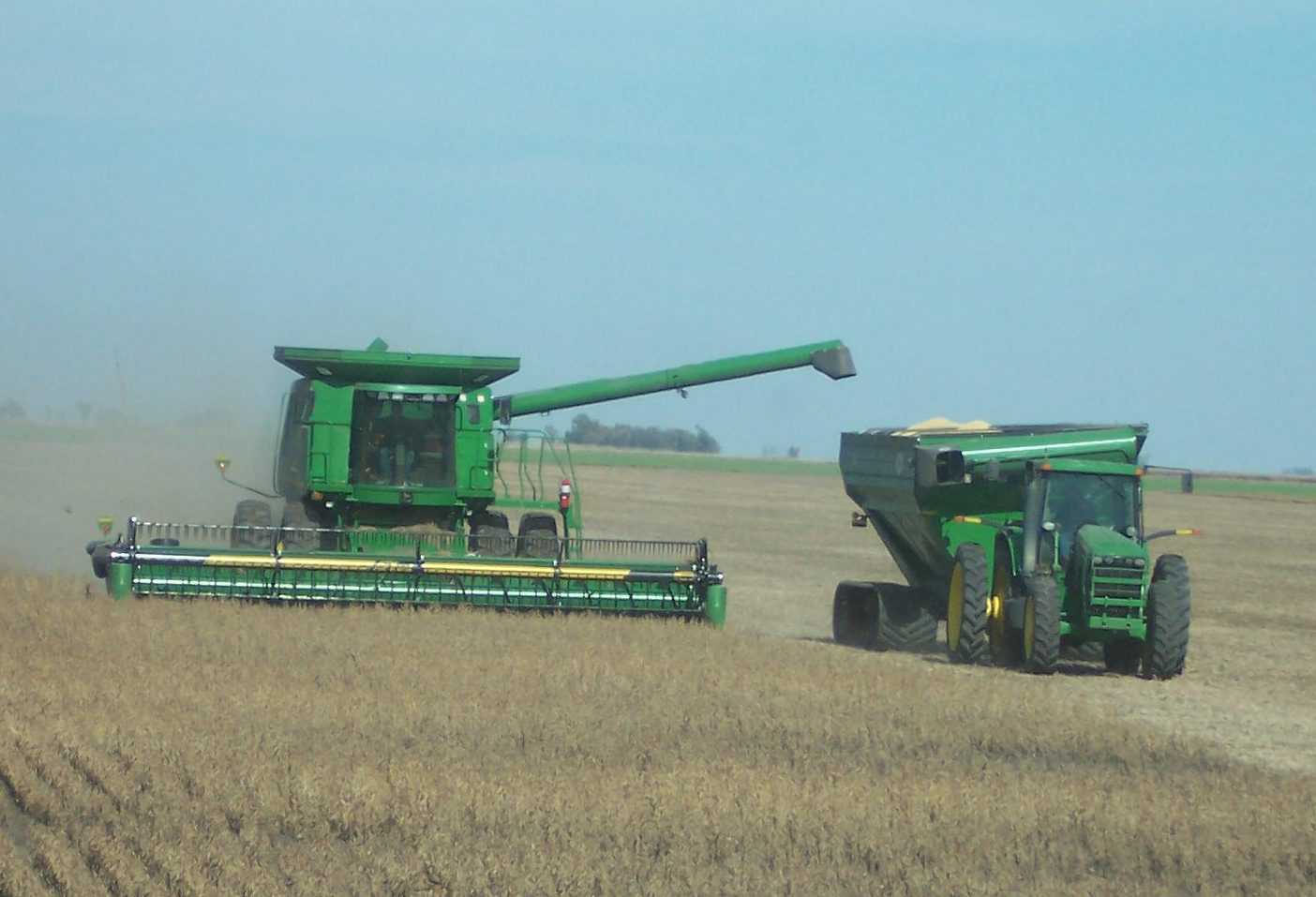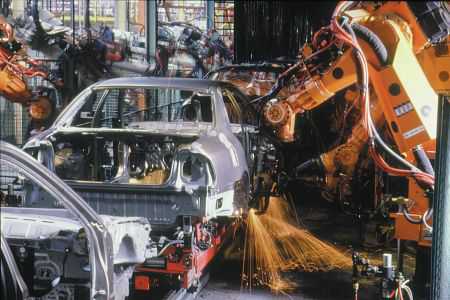
According to an agricultural report drawn up by the Turkish Ministry of Agriculture and Rural Affairs and submitted to the Prime Ministry, the country’s agricultural revenues increased by 80 percent between 2002 and 2007, showing the success of Turkey’s recent land unification projects.
While agriculture counted for $22 billion of gross domestic product (GDP) in 2002, this figure had risen to $39 billion by 2007.
According to figures in the report, agricultural reform is about to be become a reality. In the early years of the republic, state policy sought the distribution of land owned by feudal landlords amongst those capable of tilling them. Even though in 1974 the late Prime Minister Bülent Ecevit took the first step toward achieving agricultural reform, his biggest dream, the attempt proved futile and only 137,000 hectares of land were unified in the 28 years prior to 2002. The lands unified in the five years following 2002, however, amounted to 232,000 hectares, clearly indicating that land unification projects have been quite successful in recent years. Land unification is aimed at allowing farmers to use land more efficiently.
The report prepared by the ministry in June details the agricultural reforms carried out in Turkey over the last five years. It is underscored in the report that agricultural support credits, donations and agricultural reform in general are the basis of the recent success in agriculture. It was noted that a change made to the Soil Protection and Land Usage Law in particular prevented the division of lands after land owners die, which contributed to the recent success. The amendment to the law introduced the officially determined size of the smallest indivisible agricultural land, which is 20 hectares.
The report said that this amendment also prevented the division of lands into many pieces that stems from concurrent possessions. However, a set of changes should be made also to the Turkish Civil Code in order that the reform process can continue in full swing, it added. The salient parts of the proposed change, drafted by the Ministry of Agriculture and Rural Affairs, were also included in the report.
Through the law, expected to be passed before the year expires, the division of lands will be averted, while such lands running a high risk of being divided soon will be sold to third persons if necessary. The changes can be roughly summed up as follows: Agricultural corporations and agricultural lands will be handed over to a single inheritor in order to prevent division. The ownership handover will be completed in six months at most. In the event other inheritors object to the decision, the judge of a court of first instance will have the power to decide which person inherits the land based on a number of criteria, such who has the ability to take care of the land in the best manner possible. Until the court settles the disagreement, such lands will be operated in the most efficient way by third persons.
In the event that all the inheritors have equal financial conditions, the ownership will be transferred to the inheritor who will pay the highest sum for the ownership rights. If the inheritor to whom the ownership is transferred cannot pay the shares of the other inheritors, he will be provided with a cheap loan by the state in order to pay these shares. There will not be any registration transactions at the deed office without completion of these payments. If the hereditary share is made in the frame of the determined regulations and the other inheritors and the Ministry of Agriculture and Rural Affairs are informed, the owner of the agricultural facility or land subject to heritage will be able to apply to a court of first instance for the sale of this facility or land.
In cases of shared-ownership, none of the shares will be sold or taken over to anyone but the shareholders. These shares will not be mortgaged or confiscated.
How was the success story of agriculture written?
The report dwelled on the reasons for the positive developments in the agriculture over the last five years. The most important one of them is the decrease in the interest rates of agricultural loans. The average interest rate for agriculture loans was 59 percent in 2002, and this number decreased to 17 percent after the Justice and Development Party (AK Party) government came to power. Agricultural loan interest rates are between 15 and 17 percents at the moment. The total amount of agriculture loans used in 2002 was YTL 529 million, but this number boomed to YTL 6.2 billion in 2007.
The report explains that while the amount of agricultural incentives was YTL 1.86 billion in 2002 this number reached YTL 5.54 billion in 2007. YTL 1.07 billion was provided to the farmers in 2006 in the form of Rural Development Subsidies and this number reached YTL2.23 billion in 2007. The report also emphasizes that the Ministry of Agriculture and Rural Affairs granted YTL 385 million to 2,683 projects in 2007 and the ministry also granted YTL 137 million to 9,748 drip irrigation projects in 2007.
The ministry also provided a total of YTL 56 million of equipment to 3,660 projects, creating employment for 29,000 people, which added YTL 1 billion to the economy as a result.
The report said after these huge developments in Turkey, the country has become an agricultural country once again, adding that beginning from 2002 there have been large increases in the production of some products that were imported in 2002 due to lack of production.
Production increased by 80 percent in corn, 93 percent in rice, 32 percent in sunflower seeds, 87 percent in bananas, 29 percent in citrus fruits, 32 percent in milk products, 35 percent in white meat production and 40 percent in feed grain production.
In the world that has been experiencing a dramatic increase in food prices, this news is very encouraging, says D-8 Secretary General, Dipo Alam. He said D-8 wish to disseminate this lesson to the rest of its memberstates. He reminded the fact that food prices are very crucial that study reveals that unrest linked to high food price has already occurred in more than 25 countries. At the beginning of 2008, real prices reached their highest level in nearly 30 years. Projections suggest that they are likely to remain relatively high in the next few years, although at a lower level that what is being observed in the first quarter of 2008. “Much will depend on how global supply will respond and on whether demand will continue to grow as rapidly as in the recent past,” he said.
One of the result from D-8 6th Summit in KL earlier this month, was that head of states of D-8 pledged their readiness to deal with the global challenges regarding with the skyrocketing food prices. Some identified potential cooperation that discussed among D-8 head of states and need to be followed for their implementation are:
- To develop some fertilizer and pesticide plants in D-8 countries, and apply Preferential Trade Agreement for exporting and importing the products to ease D-8 farmers to produce more food products and the supply;
- To develop cooperation on animal feed factory within D-8 countries; and apply Preferential Trade Agreement for exporting and importing the products;
- To establish a Seeds Bank in D-8 Countries for enough seeds stock whenever are needed for increasing more food products within the countries, as well as a ready stock whenever needed by farmers because of natural disasters, and other unfortunate situation;
- To establish D-8 Food Fund for helping the needy on the food within D-8 countries caused by current unfortunate situation in food crisis time;
- To set up an R&D and technological cooperation in the areas of agricultural development, especially to increase the productivity both in inland-farming and agro-based industry;
- To cooperate for diversifying agricultural products supply, including fishery; animal husbandry; and organic products;
- To establish capacity building, including education and training program; and
- To establish a public-private partnership, by involving more private sectors participation in the programs.




